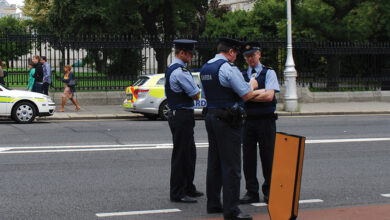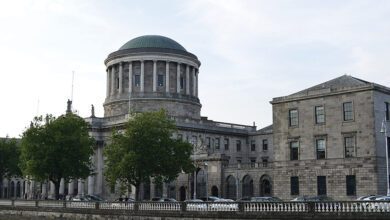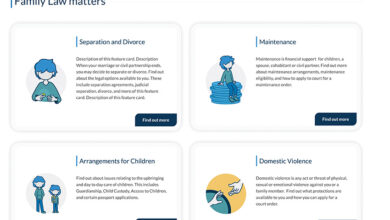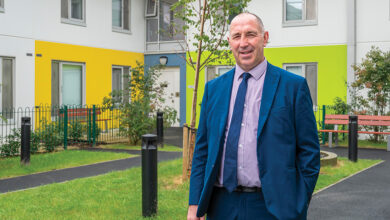Peter McVerry: Prison rehabilitation
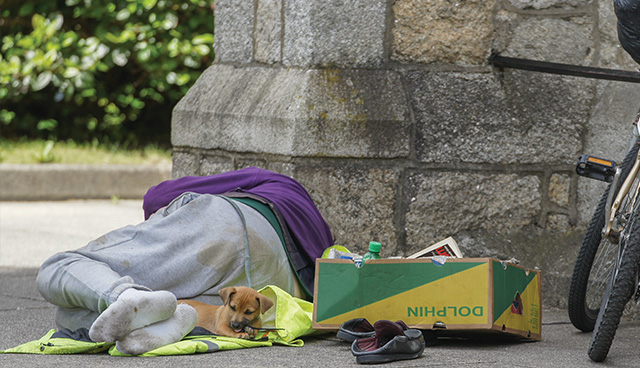

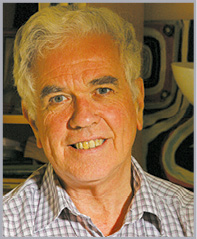 The only public service available to the poor, for which there is no waiting list: the Irish Prison Service. Father Peter McVerry details his experience of trauma within the prison system.
The only public service available to the poor, for which there is no waiting list: the Irish Prison Service. Father Peter McVerry details his experience of trauma within the prison system.
Irish prisons contain an increasing number of dangerous people, most of whom are involved in the increasingly violent drug trade. At the same time, the vast majority of prisoners, probably 75 per cent, are in prison because of an addiction.
They have robbed to pay for their drugs. They have committed serious crimes, often under threat of violence, to pay off a drug debt. Or they have been caught in possession of drugs or have sold drugs to feed their own drug habit.
One young man, who owed a substantial sum of money to drug dealers, was threatened that if he did not participate in an armed robbery to pay his drug debt, he would be shot dead. Another, again under threat of death, was forced to carry out a shooting. Others have committed crimes while high on drink, drugs or both, but have no recollection of what they have done until they wake up in a police cell.
People addicted to drugs go into a prison system which is full of drugs and violence. Many ask to go into protection whereby they are locked in their cells for 22 or 23 hours each day. In the Mountjoy main prison, over half of all prisoners are on protection. Consequently, they have no access to education or training. The boredom, the isolation and the meaninglessness of their life in prison provokes many of them to continue using drugs to escape from the reality of this existence. Eventually, they are released with their addiction unaddressed and inevitably resume their drug use and return to prison.
I frequently meet prisoners in Cloverhill remand prison whom I had met serving a sentence only several months previously. Perhaps the record is held by a young 18-year-old whom I met a few days before his sentence was due to end. A week later, I met him now back in prison, on remand. I asked him how long he had been out for. “Eighteen hours,” he told me, adding: “I came in from nothing and got out to nothing, back to the same old life that brought me into prison in the first place.”
Many of those who are addicted are using drink or drugs to blot out their memories of childhood, memories of dysfunctional families, violence, abuse or neglect. One morning, I met with nine prisoners, six of whom were known to me to have been abused as children, and the other three I wasn’t able to say.
Addiction is often only a symptom of much deeper problems, problems that were never addressed. They bring their childhood crises with them into prison, where they lie on their bed all day, nothing to do except think, unable to escape from their memories. Then they are released carrying the same memories with them, with no other way of escaping from them than to drink to excess or take drugs. One young man told me: “Life outside prison is the same as life inside prison, except there are no bars.”
“Recidivism depends, not so much on what happens to a person while in prison, but what happens to a person during the first six weeks after release.”
Many prisoners whom I meet ask me can I get them into a treatment centre. Some are in custody on remand, with bail attached, but they refuse to take up bail because they know that, if released, they will simply return to using drugs. Others coming to the end of their sentence ask me to get them into a treatment centre on the same day they are released, as again they know that, otherwise, they will inevitably return to using drugs. Due to the shortage of treatment places, few succeed in accessing a treatment centre. Within days, they on the road back to prison again.
In the Misuse of Drugs Act 1977, some farsighted civil servant inserted a section which enabled judges to send an individual to a custodial drug treatment centre, instead of a prison sentence. Forty years later, no such custodial drug treatment centre exists. In the Scandinavian countries, anyone sent to prison, who requests treatment for their addiction, is guaranteed a place in a custodial treatment centre within two weeks of committal.
But not all prisoners have an addiction. Some are in prison purely because they are homeless. Homeless people often get arrested for minor public order offences, or if they enter a vacant building to sleep for the night, they may be arrested for trespassing. If arrested, they are automatically refused bail because they have no address.
Again, every week when I visit the remand prison, I am asked if I could provide an address which would allow them immediate release. Unfortunately, due to the homeless crisis, no spare capacity exists in homeless hostels, and the system does not allow a person in custody to jump the queue to get a bed. They remain in prison because the State cannot offer them a bed.
Some prisoners, who have been model prisoners, are eligible for one-third remission. However, if a prisoner is known to be homeless, they will be refused early release and will have to serve every day of their sentence, despite their efforts to improve themselves while in prison.
Others are in prison with severe, but untreated, mental health problems. They are in prison because there is no room for them in the Central Mental Hospital. Harry Kennedy, the Clinical Director of the hospital has said: “We have people who are extremely ill, who should not be in prison, who should not be anywhere except for here. But there’s just no chance of a vacancy… It’s reaching the point where it’s actually unsafe to be in the prisons now because there are so many seriously ill, untreated people there.”
One homeless man was sent to prison for an unprovoked attack on a passer-by. His mental health was sufficiently serious that he was transferred to the Central Mental Hospital, where he received first-class treatment. When due for release, the medical services there deemed him too dangerous to be freed. They sought a place for him in a secure psychiatric hospital. No place could be found. He was released back into homelessness.
Recidivism depends, not so much on what happens to a person while in prison, but what happens to a person during the first six weeks after release. One man wrote to me from prison in England, in November last. He said he was due for release the following February. Accommodation had already been arranged for him, a place on a training programme was available for him on release, and two weeks welfare payments would be waiting for him at the prison gate.
In Ireland, many prisoners are released into homelessness, or back to the same dysfunctional family where family members suffer from addiction, into the same disadvantaged neighbourhood where drugs are rampant, with nothing to do during the day and not a cent in their pocket. Why are we surprised if and when they reoffend?


